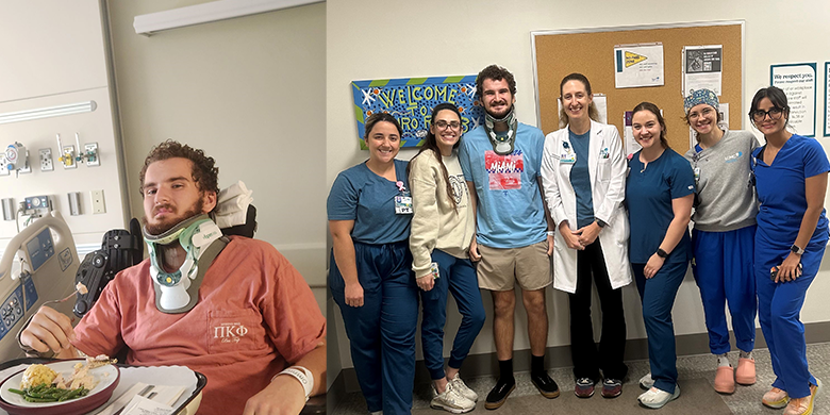How to protect your heart in excessive heat
- Category: Cardiology, Heart Care
- Posted on:

How to protect your heart in excessive heatWith average highs in the 90s, we’re no strangers to summer heat advisories here in Louisiana. Maybe you’ve heard about the dangers of excessive heat, including heat stroke and heat exhaustion. But do you know about the connection between heat and heart health? Learn how to stay cool in the heat and protect your heart. How heat affects heart healthWhen temperatures rise, your heart beats faster. Specifically, for every one degree your body temperature goes up, your heart rate increases by about 10 beats per minute. As your heart beats faster, it works harder. And your body responds. To cool down, blood vessels dilate, and heart rate and blood pressure go up. You start to sweat, which removes water and electrolytes from the body. All these responses together can increase your risk of serious heart problems, such as heart attack, heart failure, and irregular heartbeats. Additionally, when you have heart disease or heart failure, you’re at a higher risk of heat-related illnesses like heat stroke—a life-threatening condition that happens when the body can’t regulate its temperature. Heat safety tips for people with heart diseaseA hot day is especially dangerous for people with heart disease. Both the cardiovascular and nervous systems don’t work as well as they should to help you stay cool in the heat. The following heat safety tips can help. Learn about your heart medicationsIf you have heart disease, you probably take medications to treat your condition. Some medications, including diuretics and blood pressure drugs like beta blockers, can make it harder for your body to cool itself down. So can following a low sodium diet. Talk to your health provider or pharmacist to see if your medications make you more vulnerable to heat-related illnesses. Drink water every dayHydration is important for your health, not just when there’s an excessive heat warning. Water is best. Avoid drinks with caffeine, alcohol, or lots of sugar, such as fruit juice. These beverages can make you more dehydrated because they prevent water from getting into the bloodstream. If your provider limits your liquids, ask them how much you should drink when it’s hot outside. Wear appropriate clothingIn the summer heat, wear lightweight, loose clothing to help keep your body cool. Go for lighter colors that reflect the sun instead of darker colors that absorb the sun’s heat. Clothes made of cotton or wicking material can repel sweat. Be smart during heat advisories and high humidityKeep your eye on the weather forecast during the summer. Not only can intense heat put you in danger, but also humidity. When it’s humid outside, sweating is less effective at cooling down the body. So, when humidity levels are 70% or higher, try to limit the time you spend outdoors. When you are outdoors, keep activity to a minimum and practice sun safety. If you have high blood pressure, check it regularly when it’s hot and humid, and go inside at the first sign of strain on the body. Take time to cool down indoorsEspecially during a heat advisory, stay in an air-conditioned place as much as possible. If your home doesn’t have air conditioning, go to the mall, the movies, or a friend’s house. A few hours in a cooler environment can decrease your body temperature so you’re ready to go back into the heat. A cool shower or bath can also help. Watch for signs of heat-related illnessOn hotter days, look out for signs of heat stroke:
A heat stroke is an emergency that requires medical help. A little extra heart supportThere are many ways to protect your heart in the heat. But in New Orleans, you also have access to some of the most advanced heart and vascular care in the region at LCMC Health. Our dedicated cardiologists, nurses, and therapists help you manage heart disease in all its forms. Learn more about heart and vascular care near you. |
